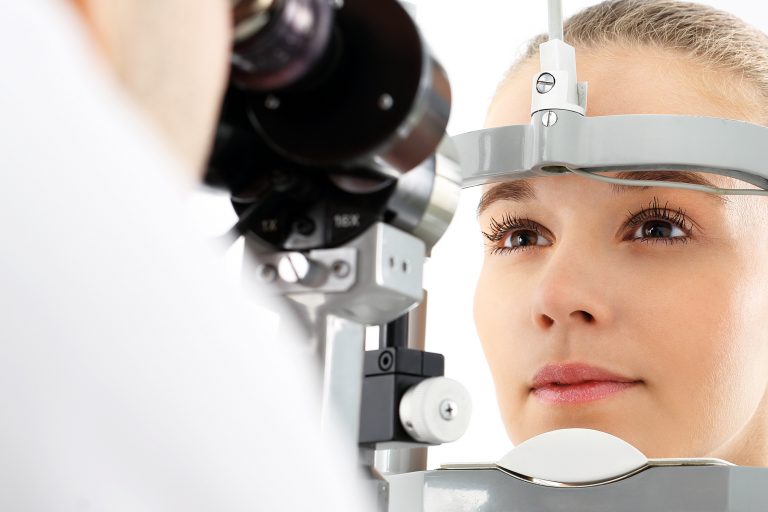Glaucoma implies damage to the optic nerve secondary to elevation of intraocular pressure and resultant loss of visual field. Most patients have no complaint in early stages of the condition. It may even lead to blindness without any alarming sign in some cases. It is one of important causes for irreversible blindness both in our country and around the world. Therefore, early diagnosis is very crucial in glaucoma. Particularly, people who have a family member with glaucoma require regular examinations. In our clinic, glaucoma can be detected in early stage through OCT, computerized perimetry, comprehensive and careful evaluation and optic nerve analysis. Due care is exercises for follow-up and examinations of our patients. The best treatment option is decided for patients who require treatment. Medications, laser and surgery are used for the treatment.
What is Glaucoma?
Glaucoma implies destruction of the optic nerve secondary to abnormal fluid accumulation in the eye globe.
Why does glaucoma develop?
Intraocular fluid is continuously produced and it is drained through certain paths. Glaucoma most commonly develops when the system that drains the intraocular fluid becomes clogged.
What are potential symptoms in a patient with glaucoma?
Patients may have no complaint in primary open-angle glaucoma, the most common type of glaucoma. It progresses very insidiously and the visual field narrows from the periphery to the central zone. It is difficult to recognize this loss even by most informed people. Therefore, routine eye exam and intraocular pressure measurement are very critical especially for people aged 40 or above, since the disease is more prevalent after 40.
Which tests are performed to detect glaucoma?
Visual field, pachymetry and nerve fiber analyses play a major role in early diagnosis of the condition in people who have documented elevation of intraocular pressure or signs of glaucoma in the optic nerve. Glaucoma causes irreversible damage in the optic nerve. In other words, the lost tissue or function of the optic nerve will never be restored. Therefore, an eye exam at least once a year is very important in terms of preventive medicine and prevention of potential irreversible vision loss.
Which factors increase risk of glaucoma?
- Advanced age
- Family history notable for glaucoma (genetic predisposition)
- Smoking
- Diabetes Mellitus
- High-Low blood pressure
- Myopia
- Long-term corticosteroid therapy
- Ocular injuries
- Migraine
For people with such factors, it is rational to have an eye exam regarding glaucoma.
What are treatment alternatives for glaucoma?
Recently developed drugs can largely regulate the high intraocular pressure. Those medications are used throughout the life by people who are diagnosed with glaucoma. In other words, those drugs may decrease the intraocular pressure as long as they are used. It may be necessary to switch to another drug under supervision of a physician due to tolerance to certain medications or prevention of potential side effects. If medications cannot control the high intraocular pressure, laser procedures and surgical treatments are preferred. All examinations that enable early diagnosis of glaucoma are available in our clinic.

